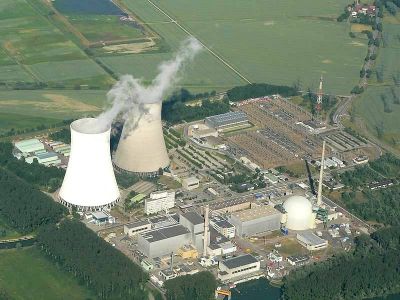
Philippsburg2
By Lothar Neumann, Gernsbach [1] (Karlsruhe:Bild:Philippsburg2.jpg) [CC BY-SA 2.5 (http://creativecommons.org/licenses/by-sa/2.5)], via Wikimedia Commons
Most European countries with nuclear power plants or research reactors
have active waste management programmes. However, these programmes are
financed differently around the EU. Another important difference is
their current status, which varies significantly.
IGD-TP was launched in 2009 and currently has 115 participating organisations. Collectively, they encourage the establishment of waste management programmes that integrate geological disposal as the preferred option for spent fuel, high-level waste and other long-lived radioactive waste.
The EU-funded
SECIGD2 project was initiated to deepen integration and facilitate access to expertise and technology for timely implementation of the first geological disposal facilities. It succeeds the SECIGD project that resulted in a Strategic Research Agenda (SRA) for public consultation.
The SRA identifies the key topics of R&D that have the potential to accelerate geological repository implementation through enhanced cooperation in Europe. It is clear that the IGD-TP has initiated a systematic way of coordinating nuclear waste management research.
SECIGD2 provides support to the Technology Platform secretariat activities over the period 2013-2015. In particular, annual exchange forums and IGD-TP Geodisposal conferences are organised to serve as catalysts for building consensus among stakeholders from a broad range of backgrounds.
Waste management organisations, research centres, academia and non-governmental organisations have the opportunity to express their views and thereby initiate joint actions. At the same time, partnerships between universities and research institutions are promoted to create critical masses for both research and training.
In addition to training specialists in all areas of nuclear power generation, the IGD-TP secretariat addresses the need for a well-informed general public. The latest developments can be followed on the dedicated public
website that is regularly updated.

